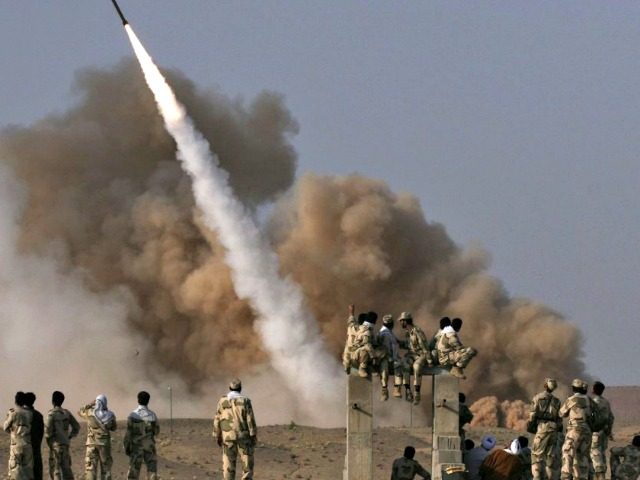Iranian lawmaker Allaeddin Boroujerdi, who leads the Iranian parliament’s national security committee, has pledged to legally designate the U.S. military and the CIA “terrorist organizations” if the U.S. State Department does the same to the Iranian Revolutionary Guard Corps (IRGC), a military arm with longstanding ties to Hezbollah.
Boroujerdi said this weekend that his committee would consider a bill designating both the military generally and the CIA terrorist organizations following the conclusion of the parliamentary recess for the Nowruz (Iranian new year) holiday. “The U.S. army has been involved in numerous crises in the region, including in Afghanistan, Iraq, Syria, and Yemen,” Boroujerdi argued, accusing Washington of a “broad range of support… to terrorist organizations.”
The U.S. military “has become a de facto supporter of terrorist groups who are killing the innocent people of the region to put into practice the secret operation of the U.S. and U.S. intelligence organizations in the region,” Boroujerdi added, according to Iran’s Mehr News Agency.
“The Intelligence Organization of the U.S. and the U.S. Army are full-fledged state terrorist organizations,” he concluded.
Boroujerdi’s threat is a response to both a round of new sanctions on companies believed to work with Iran and reports that the Trump administration is considering designating the IRGC itself a terrorist group. The IRGC – particularly its feared “Quds Force” terrorist brigade – stands accused of cooperating with Hezbollah in Syria, with anti-American Shiite militias in Iraq, and establishing terrorist training camps within Iran to train Shiite fighters. The Kurdish outlet Rudaw reports that Boroujerdi proposed the counter-designation as a reaction to any attempt to designate the IRGC a terrorist group, also claiming that doing so would violate the 2015 Joint Comprehensive Plan of Action (JCPoA), or Iranian nuclear deal.
The U.S. State Department published a new list of corporations sanctioned for working with Iran, North Korea, and Syria, the three countries on the State Department’s State Sponsors of Terrorism list (while maintaining ties to Hezbollah and the Revolutionary Armed Forces of Colombia (FARC), President Barack Obama removed Cuba from the list during his tenure). While most of the corporations on the new list are Chinese and accused of working with North Korea, Iran took the update as a personal affront and has responded with a reciprocal list of U.S. companies banned from doing business in the country.
The 15 companies sanctioned include the real estate agency Re/Max – accused of working with the Israeli government – and the corporation Oshkosh, accused of cooperating with Israeli companies to make armored vehicles. The companies all stand accused of “directly and/or indirectly, [being] involved in the brutal atrocities committed by the Zionist regime in the occupied Palestinian territories, or… support[ing] the regime’s terrorist activities and Israel’s development of Zionist settlements on the Palestinian soil.” The companies, the sanctions announcement claims, have “flagrantly violated human rights” for cooperating with Israeli counterparts.
Israel National News notes the sanctions are “largely symbolic since the firms do not do business with Iran.”
As a presidential candidate, Trump expressed concern about Iran’s expansionist activity in the Middle East, particularly the presence of Iranian-allied militias in the battle against the Islamic State in Iraq. The Popular Mobilization Forces (PMF), a largely-Shiite coalition, have seen then received legal approval from Baghdad and are playing a major role in the fight to liberate Mosul, Iraq, from the Islamic State, despite the group’s vow to abandon the fight against ISIS and attack U.S. soldiers should they be alerted to an American presence there.
“Iran remains the leading state sponsor of terrorism globally,” State Department acting coordinator for counterterrorism Justin Siberell said in June, telling reporters the State Department had reason to believe Iran was aiding both Hezbollah and a variety of smaller terrorist groups in Gaza. The State Department report released at the time accused the IRGC’s Quds Force of being “Iran’s primary mechanism for cultivating and supporting terrorists abroad.”
In 2015, Iranian Defense Minister Hossein Dehqan not only admitted to aiding terrorist groups but issued a promise that his government would continue to fund such “resistance movements”: “We have often declared publicly that we will not stop material or spiritual support for Hezbollah or any other resistance organizations that are fighting the U.S. and the Zionist regime.”

COMMENTS
Please let us know if you're having issues with commenting.